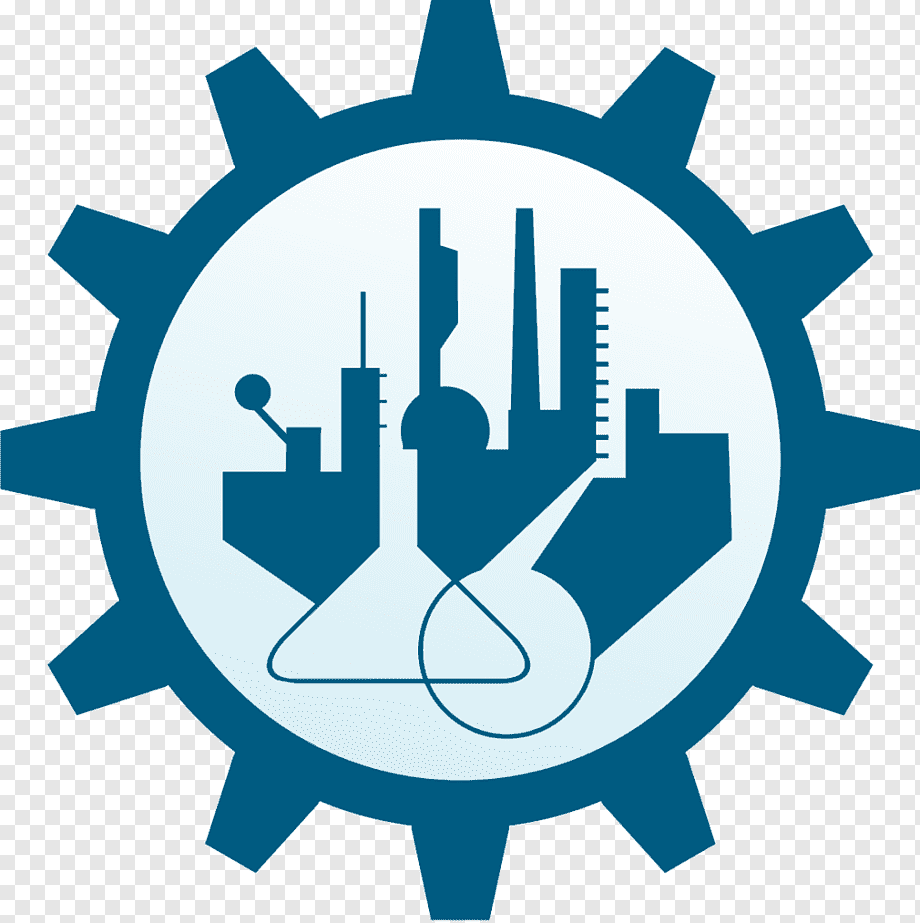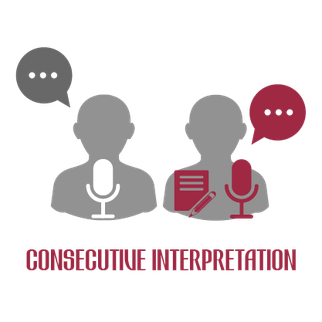SDG13 - CLIMATE ACTION
Courses tagged with "SDG13 - CLIMATE ACTION"

This Chemistry module is designed to give the student a broad understanding of the fundamentals of different Industrial chemistry and their applications and also fundamentals of environmental problems such as water and air pollution and their treatment. The module is particularly useful for the preparation of future studies in all engineering branches.
- Teacher: Yassmin Abdl Kader Abou Elyazied Shammakh
- Teacher: Rawan Elshahawi Elsaeid Elsayed
- Teacher: Diaa Hafez
- Teacher: Nora Hany Ibrahim Shaheen
- Teacher: Fatma Ibrahim Sayed Barakat
- Teacher: Maysa Mahmoud Fathy Omar
- Teacher: Dr.Nabila Nowaira
- Teacher: Prof.Dr.Hafez Radi
- Teacher: Prof.Nahed Sobhi abd elnour
- Teacher: Mona afifi
- Teacher: Salwa Abdel Moniem Yassen El Gindi
- Teacher: Tasneem Alaa El-Din Ibrahim Emam
- Teacher: Hemat Essameldin Ismail Elbannan
- Teacher: Diaa Hafez
- Teacher: Arwa Hussein Abdillatif
- Teacher: Nermine Ibrahim Nofal
- Teacher: Aya Ismaiel Ghobashi
- Teacher: Maysa Mahmoud Fathy Omar
- Teacher: Yosra Mohamed Ahmed Ahmed
- Teacher: Mona Mostafa Amin Mostafa
- Teacher: Dr.Nabila Nowaira
- Teacher: Prof.Dr.Hafez Radi
- Teacher: Dr.Shady Shawky Saifelnasr
- Teacher: Prof.Nahed Sobhi abd elnour
- Teacher: Salwa Abdel Moniem Yassen El Gindi
- Teacher: Mai Adel Mohamed Ebaid
- Teacher: Tasneem Alaa El-Din Ibrahim Emam
- Teacher: Doaa Esmat Hassan
- Teacher: Diaa Hafez
- Teacher: Mona Hassan Huseein Sakr
- Teacher: Maysa Mahmoud Fathy Omar
- Teacher: Marine Medhat Kamel Amin
- Teacher: Ali Mosleh Saad Hammad
- Teacher: Nariman Nashaat Gamil
- Teacher: Dr.Nabila Nowaira
- Teacher: Prof.Dr.Hafez Radi
- Teacher: Dr.Shady Shawky Saifelnasr
- Teacher: Prof.Nahed Sobhi abd elnour
- Teacher: Salwa Abdel Moniem Yassen El Gindi
- Teacher: Diaa Hafez
- Teacher: Maysa Mahmoud Fathy Omar
- Teacher: Dr.Nabila Nowaira
- Teacher: Prof.Dr.Hafez Radi
- Teacher: Dr.Shady Shawky Saifelnasr
- Teacher: Prof.Nahed Sobhi abd elnour
- Teacher: Salwa Abdel Moniem Yassen El Gindi
- Teacher: Sherif Ahmed Mohamed Anees Ahmed
- Teacher: Diaa Hafez
- Teacher: Maysa Mahmoud Fathy Omar
- Teacher: Dr.Nabila Nowaira
- Teacher: Prof.Dr.Hafez Radi
- Teacher: Dr.Shady Shawky Saifelnasr
- Teacher: Prof.Nahed Sobhi abd elnour
- Teacher: Nehal Abd El Wahab Amer
- Teacher: Salwa Abdel Moniem Yassen El Gindi
- Teacher: Rana Adel Ibrahim Zaki
- Teacher: Lobna Ahmed Galal
- Teacher: Eman Ahmed Saleh
- Teacher: Doaa Esmat Hassan
- Teacher: Diaa Hafez
- Teacher: Mona Hassan Huseein Sakr
- Teacher: Arwa Hussein Abdillatif
- Teacher: Nermine Ibrahim Nofal
- Teacher: Omnia Magdy Ismail Saber Attalaah
- Teacher: Maysa Mahmoud Fathy Omar
- Teacher: Yosra Mohamed Ahmed Ahmed
- Teacher: Merna Mohamed Reda
- Teacher: Mona Mostafa Amin Mostafa
- Teacher: Dr.Nabila Nowaira
- Teacher: Prof.Dr.Hafez Radi
- Teacher: Alaa Sayed Mahmoud
- Teacher: Dr.Shady Shawky Saifelnasr
- Teacher: Al Shimaa Galal Al Din
- Teacher: Prof.Nahed Sobhi abd elnour
- Teacher: Dr.Rania ahmed hamdi abdel moneim el meseidy
- Teacher: Salwa Abdel Moniem Yassen El Gindi
- Teacher: Tasneem Alaa El-Din Ibrahim Emam
- Teacher: Doaa Esmat Hassan
- Teacher: Diaa Hafez
- Teacher: Mona Hassan Huseein Sakr
- Teacher: Maysa Mahmoud Fathy Omar
- Teacher: Esraa Mohamed Ahmed El Areef
- Teacher: Dr.Nabila Nowaira
- Teacher: Prof.Dr.Hafez Radi
- Teacher: Mohamed Rafik A. Meguid Sadek
- Teacher: Alaa Sayed Mahmoud
- Teacher: Dr.Shady Shawky Saifelnasr
- Teacher: Prof.Nahed Sobhi abd elnour
- Teacher: Salwa Abdel Moniem Yassen El Gindi
- Teacher: Rana Adel Ibrahim Zaki
- Teacher: Dr.Alaa Adel Mahmoud Elsherif
- Teacher: Mai Adel Mohamed Ebaid
- Teacher: Lobna Ahmed Galal
- Teacher: Diaa Hafez
- Teacher: Mona Hassan Huseein Sakr
- Teacher: Shereen Hussein Abd El Fattah
- Teacher: Arwa Hussein Abdillatif
- Teacher: Nermine Ibrahim Nofal
- Teacher: Dr.Aya Magdi Younis
- Teacher: Maysa Mahmoud Fathy Omar
- Teacher: Yosra Mohamed Ahmed Ahmed
- Teacher: Rana Mohamed Hany Mohamed Fouad
- Teacher: Merna Mohamed Reda
- Teacher: Hend Mostafa Mohamed Mostafa
- Teacher: Nariman Nashaat Gamil
- Teacher: Dr.Nabila Nowaira
- Teacher: Prof.Dr.Hafez Radi
- Teacher: Alaa Sayed Mahmoud
- Teacher: Dr.Shady Shawky Saifelnasr
- Teacher: Al Shimaa Galal Al Din
- Teacher: Prof.Nahed Sobhi abd elnour
- Teacher: Dr.Rania ahmed hamdi abdel moneim el meseidy
- Teacher: Sameh Ahmed Salah El-Dein
- Teacher: Diaa Hafez
- Teacher: Sherine Ibrahim Bishara
- Teacher: Maysa Mahmoud Fathy Omar
- Teacher: Ahmed Mostafa Mohamed Hussien Hamed
- Teacher: Dr.Nabila Nowaira
- Teacher: Prof.Dr.Hafez Radi
- Teacher: Omnia Reda Mazroa
- Teacher: Prof.Nahed Sobhi abd elnour
- Teacher: Mona afifi
- Teacher: Dr. mohamed el said hassan

LU Code : TR 301
Title : Consecutive Translation
Credit Hours/Points : 3
Level : 3
Prerequisites : TR 100, TR 101, TR 200, TR 201
Learning Outcomes:
Knowledge:
On completion of the course, for consecutive interpretation, students should:
- Indicate and account for the phenomena of oral language communication and transfer and outline the techniques of transferring language and terminology peculiar to different realms of human knowledge.
Skills:
On completion of the course, for consecutive interpretation, students should:
- Develop the intellectual abilities of working memory.
- Produce an oral account in the target language after listening to the source text consecutively.
- Develop the skill of analysing and resolving issues related to translatability problems, linguistic competence, and thus dexterously transfer source language segments from one language to another consecutively.
- Comparing and contrasting structural peculiarities of both English and Arabic languages in various fields.
- Carry out consecutive language transfer in a manageable limited time span under stressful working conditions and professional constrains.
Learning Materials:
Discussion, supervised practice and self-access laboratory interpretation assignments. Passages on various topics will be used as a teaching material.
Assessment:
20% Mid-term Exam
30% Final-term Exam
50% Coursework: 30% for practical, 10% assignments and Portfolio, and 10 % quizzes and a small project
References:
- interpreting: A corpus-based analysis,” Interpreting 7-1, p. 51-76.
- Pöchhacker, F. (in press): “‘Going simul?’ Technology-assisted consecutive interpreting,” in Bao, C. et al. (eds.) Proceedings of the MIIS Anniversary Conference, 9-11 September 2005.
- Pradas Macías, M. (2006): “Probing Quality Criteria in Simultaneous Interpreting: The role of silent pauses in fluency,” Interpreting 8-1, p. 25-43.
- Napier, J. (2003). A sociolinguistic analysis of the occurrence and types of omissions produced by Australian Sign Language–English interpreters. In M. Metzger, V. Dively, S. Collins & R. Shaw (Eds.), From topic boundaries to omission: New research on interpretation (pp. 99–153). Washington, DC: Gallaudet University Press.
- Pöchhacker, F. (2004). Introducing interpreting studies. New York, NY: Routledge. Roy, C. (2000). Interpreting as a discourse process. New York, NY: Oxford University Press. Roy, C. (2005). A discourse-based approach to teaching interpreters. In R. Locke McKee (Ed.), Proceedings of the inaugural conference of the World Association of Sign Language Interpreter, (pp. 91–100). Southampton, UK: Douglas McLean Publishing.
- Russell, D. (2002b). Reconstructing our views: Are we integrating consecutive interpreting into our teaching and practice? In L. Swabey (Ed.), New designs in interpreter education: Proceedings of the 14th National Convention of the Conference of Interpreter Trainers (pp. 5–16). St. Paul, MN: Conference of Interpreter Trainers.
- Russell, D., & Malcolm, K. (2009). Assessing ASL–English interpreters: The Canadian model of national certification. In C. Angelelli & H. Jacobson (Eds.), Testing and assessment in translation and interpreting (pp. 331–376). Amsterdam/Philadelphia: John Benjamins.
- Kalina, Sylvia. 2005. “Quality Assurance for Interpreting Processes“, Meta 50, 2
- Teacher: Dr.Rania Abdel Baky Ali
- Teacher: Dr. Safa'a Ahmed
- Teacher: Hebat Allah Adel Shaaban Hassan
- Teacher: Dalia Ibrahim Ahmed
- Teacher: Dr.Nagla Ibrahim Saleh al-Hadidy
- Teacher: Nourhan Khaled Ahemd
- Teacher: Nourhan Mohamed El arabie
- Teacher: Noureldin Mohamed Nour Eldin
- Teacher: Amr Nour El Din Hassan
- Teacher: Dr.Soha Raafat

This module aims to further enhance and complement the students’ knowledge and skills in basic econometrics and to tackle further problems encountered in estimating regression models. The module aims thus to prepare students with the necessary knowledge and skills needed to start their graduate econometrics module. All econometric models built are directly or indirectly linked to several Sustainable Development Goals (SDG) aiming to narrowing the gap economic theory and empirical applications through testing real live data. It is related to reducing poverty, improving health, climate action, sustainable and responsible production and consumption behavior , and enhancement of competitiveness , industries and innovation.
- Teacher: Dr.Doaa Abdou
- Teacher: Nada Fouad Kassem Elsahaar
- Teacher: Asmaa Mohamed Kamal Deifallah
- Teacher: Esmat Mostafa Kamel
- Teacher: Adel Samir Mohammed Awaad
This unit aims to enhance the students’ knowledge and skills needed to conduct a research paper of substantial depth and length under the supervision of a faculty member, whether it is theoretical based on literature review and analysis, or empirical based on econometric, statistical or mathematical analysis.
Topics selected by students for their graduation projects are closely linked to sustainable development goals, especially SDG8 related to decent work and economic growth, as they create models where they try to determine the main catalysts for growth in certain countries or regions. Students also choose topics related to reducing poverty (SDG1) or inequality (SDG10), quality education (SDG4) gender equality (SDG5) and many other SDGs.- Teacher: Dr.Doaa Abdou
- Teacher: Nadine Amr Mohamed Abdelmoneim Hosny
- Teacher: Dr. Heba Ezz Helmy
- Teacher: Maha Ismail Mahfouz Ismail
- Teacher: Salma Kamal Zanaty Mahran
- Teacher: Nadeen Sherif Mamdouh Eladawy
This unit aims to enhance the students’ knowledge and skills needed to conduct a research paper of substantial depth and length under the supervision of a faculty member, whether it is theoretical based on literature review and analysis, or empirical based on econometric, statistical or mathematical analysis.
Topics selected by students for their graduation projects are closely linked to sustainable development goals, especially SDG8 related to decent work and economic growth, as they create models where they try to determine the main catalysts for growth in certain countries or regions. Students also choose topics related to reducing poverty (SDG1) or inequality (SDG10), quality education (SDG4) gender equality (SDG5) and many other SDGs.
- Teacher: Dr.Doaa Abdou
- Teacher: Dina Ali Mohamed Ali Seiam
- Teacher: Nadine Amr Mohamed Abdelmoneim Hosny
- Teacher: Dr. Heba Ezz Helmy
- Teacher: Fatma Hesham Saber
- Teacher: Salma Kamal Zanaty Mahran
- Teacher: Esmat Mostafa Kamel
- Teacher: Nadeen Sherif Mamdouh Eladawy
- Teacher: T.A.Nouran said mohamed abd el menaam mahmoud